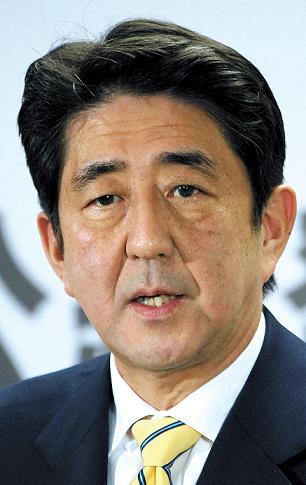[Newsmaker] LDP to further spur Japan rightward shift
By Korea HeraldPublished : Nov. 22, 2012 - 20:00
Former Japanese Prime Minister Shinzo Abe has pledged to strengthen the country’s military and revise its peace constitution to introduce collective self-defense, further spurring Japan’s rightward political shift.
The leader of the main opposition Liberal Democratic Party on Wednesday announced its campaign platform “to recover Japan and rebuild its economy.” The conservative party is expected to win in the Dec. 16 elections, which will put the hawkish Abe in the country’s top political post.
The party’s pledges include elevating the status of the Self Defense Forces to a national defense force; setting up a national security council to handle territorial disputes and others: and seeking the collective self-defense right ― the use of force to respond to an attack on an ally, namely the U.S.
The leader of the main opposition Liberal Democratic Party on Wednesday announced its campaign platform “to recover Japan and rebuild its economy.” The conservative party is expected to win in the Dec. 16 elections, which will put the hawkish Abe in the country’s top political post.
The party’s pledges include elevating the status of the Self Defense Forces to a national defense force; setting up a national security council to handle territorial disputes and others: and seeking the collective self-defense right ― the use of force to respond to an attack on an ally, namely the U.S.

“We don’t put what we can’t do in our party platform,” Abe said during a press conference.
The increasing right-wingers’ voices in Japan have raised concern that they could further dampen the prospects of multilateral cooperation for peace and prosperity in East Asia, which has long been ensnared in territorial, historical disputes.
The party also pledges to elevate the provincially observed Takeshima (Dokdo) Day to a government-level event and beef up overseas promotion to deny the Japanese military’s wartime sexual enslavement.
During his campaign for the LDP chairmanship in September, Abe also promised to revise earlier government statements apologetic of Japan’s colonial atrocities including the 1993 statement by then Chief Cabinet Secretary Yohei Kono about victims of sexual slavery.
All this could further strain ties with South Korea.
“If Abe returns to the premiership, there may be no room for any improvement in bilateral relations,” said Lee Jung-hwan, assistant professor at the School of International and Area Studies of Kookmin University.
“As he has pledged to revise the earlier statements, the Seoul government may not be able to respond in a flexible manner over such (historical) issues.”
Analysts say that as a constitutional revision requires consent from two-thirds of parliamentary members and a referendum vote, the revision may not be easy or could take much time.
Japan’s rightward shift has continued as politicians struggle to revive the country’s national pride, undermined by a series of natural disasters, a prolonged economic malaise and the rise of neighboring states such as China, experts said.
By Song Sang-ho (sshluck@heraldcorp.com)
-
Articles by Korea Herald








![[Graphic News] More Koreans say they plan long-distance trips this year](http://res.heraldm.com/phpwas/restmb_idxmake.php?idx=644&simg=/content/image/2024/04/17/20240417050828_0.gif&u=)
![[KH Explains] Hyundai's full hybrid edge to pay off amid slow transition to pure EVs](http://res.heraldm.com/phpwas/restmb_idxmake.php?idx=644&simg=/content/image/2024/04/18/20240418050645_0.jpg&u=20240419100350)






![[From the Scene] Monks, Buddhists hail return of remains of Buddhas](http://res.heraldm.com/phpwas/restmb_idxmake.php?idx=652&simg=/content/image/2024/04/19/20240419050617_0.jpg&u=20240419175937)

![[KH Explains] Hyundai's full hybrid edge to pay off amid slow transition to pure EVs](http://res.heraldm.com/phpwas/restmb_idxmake.php?idx=652&simg=/content/image/2024/04/18/20240418050645_0.jpg&u=20240419100350)

![[Today’s K-pop] Illit drops debut single remix](http://res.heraldm.com/phpwas/restmb_idxmake.php?idx=642&simg=/content/image/2024/04/19/20240419050612_0.jpg&u=)